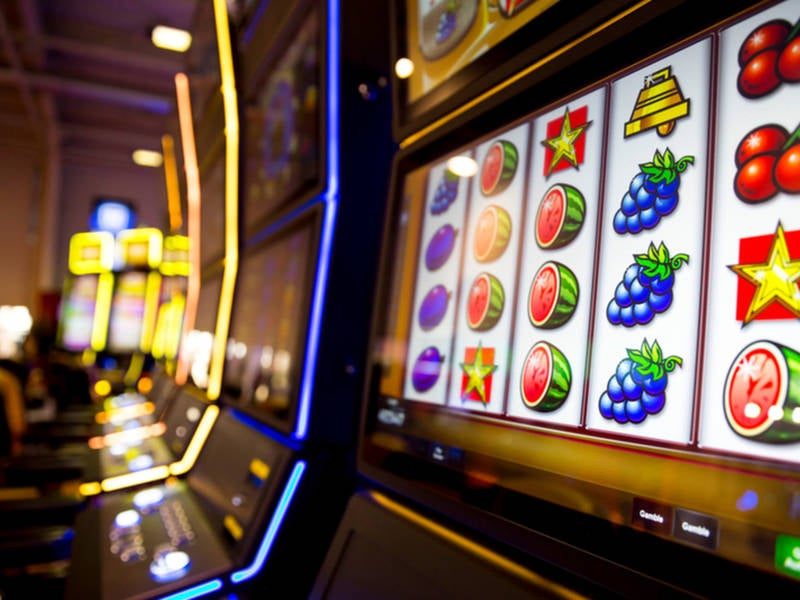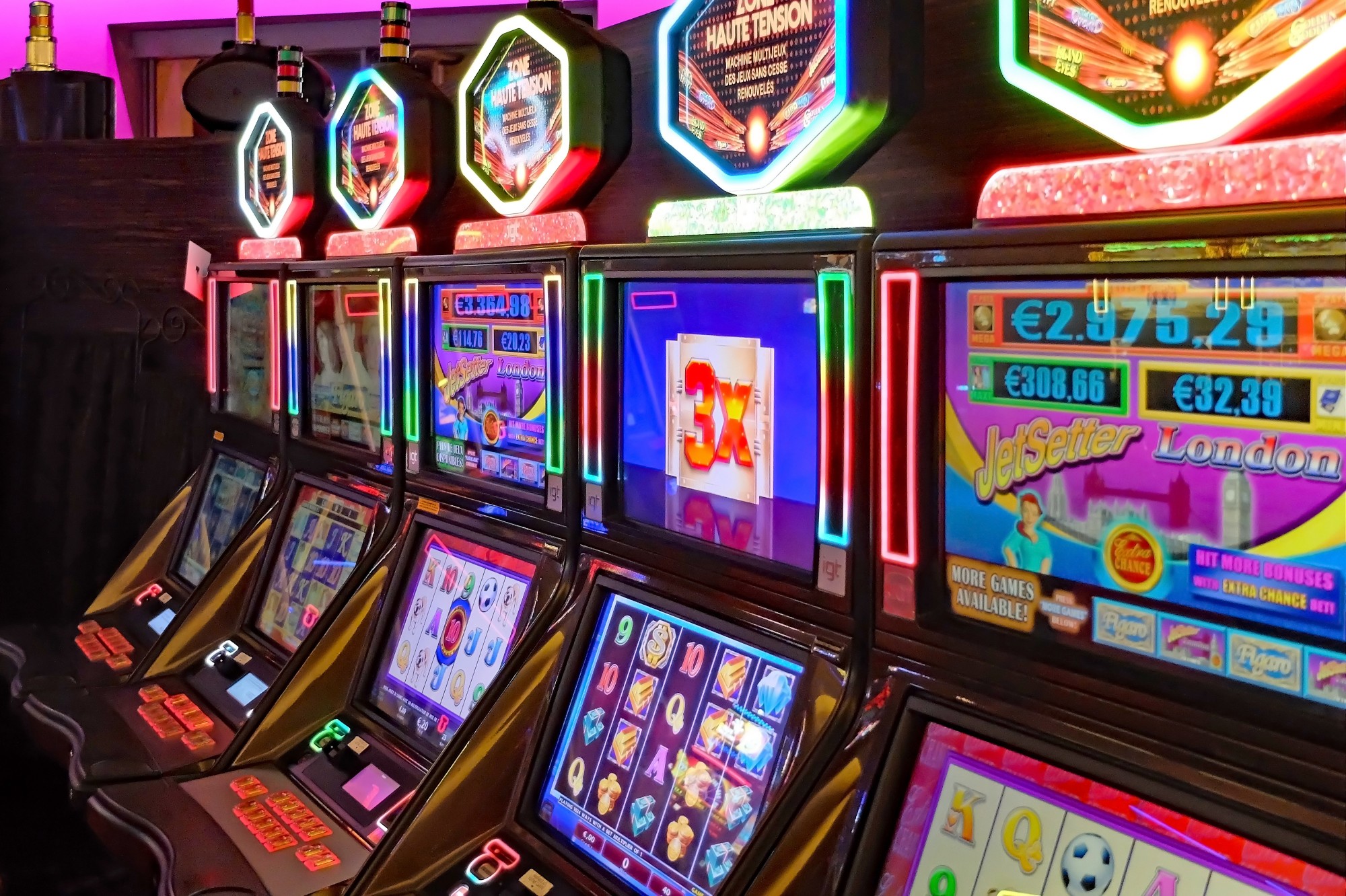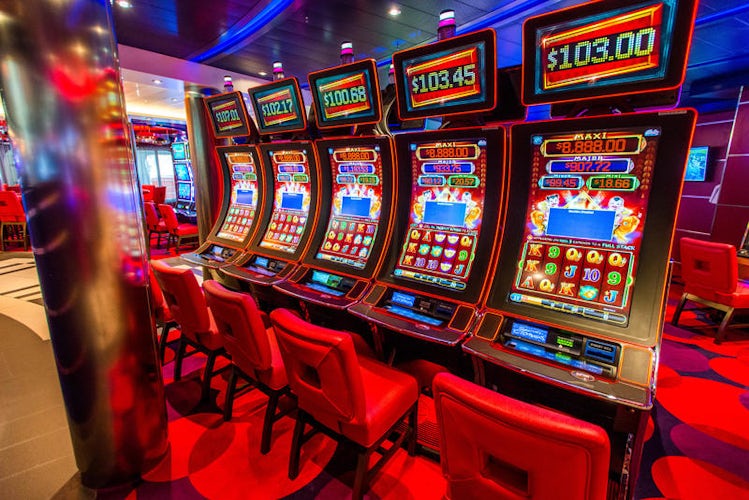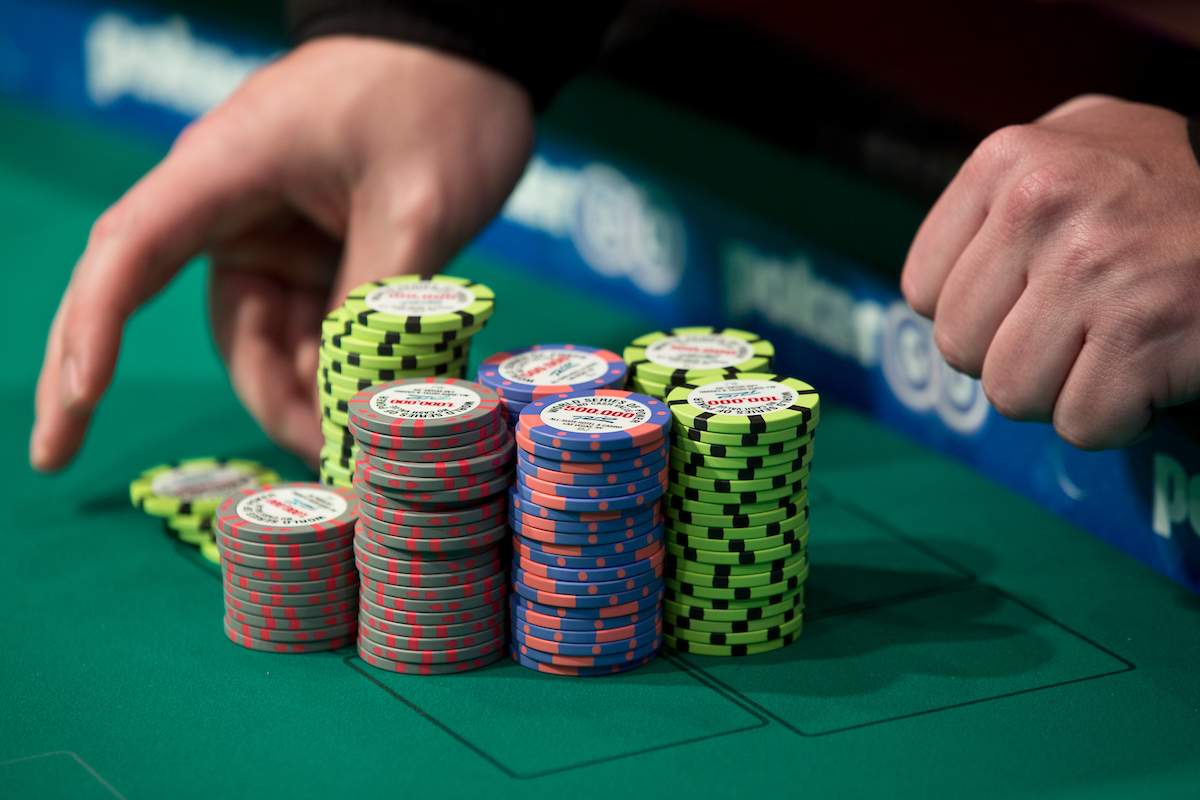Introduction
Can I Put A Slot Machine In My Business: If you’re considering adding a slot machine to your business, there are several factors to consider. Slot machines are regulated forms of gambling, and their legality and permissibility vary depending on your location and jurisdiction. Before proceeding, it is crucial to familiarize yourself with the specific laws and regulations governing gambling activities in your area.
In many regions, operating a slot machine outside of licensed gambling establishments, such as casinos or gaming venues, is prohibited. This means that placing a slot machine in a regular business, such as a retail store or restaurant, may not be allowed. Additionally, even in areas where it is legal to have slot machines in certain establishments, there are often strict requirements and licensing processes that must be followed.
It is advisable to consult with local authorities or legal professionals to understand the specific rules and regulations regarding slot machines in your area. Compliance with the law is essential to avoid potential fines, legal issues, and reputational damage to your business.

How much profit does a slot machine make?
The house edge is a percentage that the casino takes out of all money invested over the long term. The higher the house edge, the more money the casino will make. Generally, slots have a low house edge ranging from 5% to as low as 1%. This means that the RTP (return to player) percentage is around 95%-99%.
The profitability of a slot machine can vary widely depending on several factors, including the specific machine, its location, and the overall operational costs of the casino. It’s important to note that slot machines are designed to generate revenue for the casino over the long term, and their profitability is based on statistical probabilities and the built-in house edge.
Slot machines are programmed with a Return to Player (RTP) percentage, which represents the amount of money the machine is expected to pay back to players over its lifetime. For example, if a slot machine has an RTP of 95%, it means that, on average, it will pay back 95% of the total amount wagered by players, while the remaining 5% represents the house edge.
The actual profit generated by a slot machine can vary significantly from day to day and month to month. Factors such as player volume, player luck, and promotional activities can influence the short-term profitability of a machine.
It’s worth noting that casinos have significant operating costs, including maintenance, staff wages, and overhead expenses, which impact the overall profitability of their gaming operations. Slot machines are just one aspect of a casino’s revenue stream, and the profitability of the entire operation is taken into consideration.
While specific profit figures for individual slot machines are not readily available, it’s important to remember that casinos are businesses that aim to generate profits over time.
How much does it cost to use a slot machine?
There’s just a few things you should know how to work: You can pay with a previous payout ticket, your member card, or cash. Often (if not always), the previous payout ticket will go in the same slot the cash can be inserted. Most machines take $5, $10, $20, $50, $100 dollar bills, though some also take $1, too.
The cost to use a slot machine can vary depending on several factors. In most cases, you need to insert coins or bills into the machine to play. The amount required per spin or play can vary, ranging from a few cents to several dollars. Higher denomination machines generally have higher betting limits. Some machines also offer different betting options, such as multiple paylines or maximum bet requirements, which can affect the cost per play. Additionally, some slot machines may have minimum bet requirements to be eligible for certain features or jackpots. It’s important to check the specific details and instructions displayed on the machine or consult casino staff for accurate information on the cost to use a particular slot machine.
Who makes money on slot machines?
And when it comes to revenue from slots, casinos gain it through drops, the money that is being put in by players or the ‘handle’, which is the amount of payout that certain players put into the machine with the hope of winning bigger.
Several entities make money from slot machines, including:
1. Casinos: Casinos are the primary beneficiaries of slot machines. They generate revenue by offering a wide selection of slot machines to players. The house edge built into each machine ensures that, over time, the casino will make a profit from the wagers placed by players.
2. Game Manufacturers and Suppliers: Companies that design and manufacture slot machines, such as International Game Technology (IGT), Scientific Games, and Aristocrat, make money by selling their machines to casinos. They earn profits through the sale and licensing of their gaming products and technologies.
3. Distributors and Operators: In some cases, distributors or operators act as intermediaries between the manufacturers and the casinos. They may purchase or lease slot machines from manufacturers and then provide them to casinos under various agreements, sharing in the revenue generated by the machines.
4. Gaming Regulators and Tax Authorities: Gaming regulatory bodies and tax authorities oversee the operations of slot machines and collect taxes or fees from the casinos or gaming establishments. These funds are used for public services, social programs, and regulatory enforcement.
What is the highest paying slot machine?
Highest Paying Slot Machines
- Mega Jackpots Cleopatra ( pictured below)
- Monopoly Big Spin.
- Divine Fortune.
- MGM Grand Millions.
- Mercy of the Gods.
The highest paying slot machine can vary depending on the specific game and its payout structure. Progressive jackpot slot machines often offer the potential for the highest payouts. These machines are linked together in a network, with a small portion of each wager contributing to a shared jackpot. As players continue to place bets, the jackpot grows until it is won. Once won, the jackpot resets to a predetermined amount and starts accumulating again. Progressive jackpot slot machines have the potential to award life-changing sums of money to lucky winners.
Some popular slot machines known for their high payouts include Mega Moolah, Wheel of Fortune, and Cleopatra’s Gold, among others. These machines have been known to award significant jackpots to fortunate players.
It’s important to note that while some slot machines have the potential for high payouts, they are still games of chance, and winning is ultimately based on luck. The odds of hitting a jackpot or winning a substantial amount on any given slot machine can vary and are typically determined by the game’s design and programming.

Can I buy my own slot machine?
Most US states will allow you to buy a slot machine for home use. However, many states require that the slot machine be at least 25 years old.
Yes, it is possible to buy your own slot machine for personal use. However, there are a few important points to consider:
1. Legal Considerations: Slot machine ownership regulations vary by jurisdiction. Before purchasing a slot machine, research the laws and regulations in your specific location to ensure that it is legal to own and operate one for personal use. Some jurisdictions may require permits, licenses, or restrict ownership to certain types of machines.
2. Availability: Slot machines intended for personal use are typically refurbished or second-hand machines. You can find them through various sources such as online marketplaces, auctions, or specialized dealers. Keep in mind that availability may vary depending on your location and the specific type of machine you are looking for.
3. Cost and Maintenance: Slot machines can vary in price depending on factors such as the brand, age, and condition. Additionally, consider the cost of maintenance, repairs, and the necessary supplies, such as tokens or coins, to operate the machine.
4. Home Use vs. Commercial Use: It’s essential to understand that slot machines designed for personal use differ from those found in commercial casinos. Home-use machines are often for entertainment purposes and may have certain limitations, such as lower payout percentages or fewer features.
Before purchasing a slot machine, thoroughly research the laws, costs, and potential maintenance requirements associated with owning one. Additionally, consider the space requirements and any potential impact on your local community or neighbors.
What is the success rate of slot machines?
Each game you play at a casino has a statistical probability against you winning. Slot machine odds are some of the worst, ranging from a one-in-5,000 to one-in-about-34-million chance of winning the top prize when using the maximum coin play.
The success rate of slot machines is commonly referred to as the Return to Player (RTP) percentage. RTP represents the average amount of money that a slot machine returns to players over its lifetime as a percentage of the total amount wagered. For example, if a slot machine has an RTP of 95%, it means that, on average, players can expect to receive back $95 for every $100 they wager.
The success rate or RTP of slot machines varies depending on the specific game and its design. Online slot machines typically have RTPs ranging from around 92% to 98%, while land-based slot machines may have slightly lower RTPs. It’s important to note that the RTP is calculated over the long term and is based on mathematical probabilities. This means that individual players may experience different outcomes in the short term, such as winning or losing streaks.
Ultimately, slot machines are games of chance, and the success rate or RTP is an indicator of the game’s overall payout percentage. It does not guarantee specific results for individual players but rather provides an average payout percentage for the machine over its lifespan.
Why do slot machines use 777?
777 is used on most slot machines in the United States to identify a jackpot. As it is considered a lucky number, banknotes with a serial number containing 777 tend to be valued by collectors and numismatists. The US Mint and the Bureau of Engraving and Printing sells uncirculated 777 $1 bills for this reason.
The use of the number 777 in slot machines has historical significance and is rooted in the early days of mechanical slot machines. In the past, slot machines used various symbols to represent winning combinations, and one popular symbol was the lucky number 7.
The number 7 has long been associated with luck and good fortune in many cultures and traditions. It is often regarded as a symbol of perfection, completeness, and prosperity. Incorporating the number 7 in slot machines was a way to appeal to players’ desire for luck and to create a positive association with winning.
The specific combination of three 7s, commonly known as the “777” combination, became particularly iconic and highly sought after. When players saw three 7s line up on the reels, it signified a significant win and reinforced the notion of luck and fortune.
Over time, the use of 777 in slot machines has become ingrained in popular culture and has remained a common symbol associated with winning. Even in modern electronic slot machines, the 777 combination is often used to evoke a sense of luck and excitement for players.
Do people hack slot machines?
Although most slot machines have built-in security systems nowadays to prevent them from being tampered with, professional casino cheaters are still able to trick the machines into paying them out massive amounts of money.
While it is not impossible to hack a slot machine, it is highly illegal and heavily discouraged. Slot machines, both in land-based casinos and online platforms, are equipped with advanced security measures to prevent unauthorized access and tampering. These security features include encryption technology, random number generators, and auditing systems.
Attempting to hack or cheat a slot machine is a criminal offense and can result in severe legal consequences. Casinos employ extensive surveillance systems to monitor their gaming floors and detect any suspicious activity. They also work closely with gaming authorities and law enforcement agencies to ensure the integrity of their operations.
It is important to note that slot machines are designed to be fair and random, ensuring that the outcome of each spin is based on chance. The best approach to playing slot machines is to do so responsibly and within the confines of the law. Enjoying the entertainment value of slot machines while recognizing that winning is based on luck is the recommended and legal way to engage with these games.

Conclusion
The possibility of putting a slot machine in your business depends on several factors, including the legal regulations and requirements of your jurisdiction. While some regions permit certain types of businesses to have slot machines, others have strict restrictions or outright prohibitions.
To determine if you can put a slot machine in your business, you should research and consult with the relevant local authorities, such as gaming commissions or licensing boards. They can provide information on the specific rules and regulations regarding the operation of slot machines in your area.
Additionally, consider the practical aspects of incorporating a slot machine into your business. This includes evaluating the potential customer demand, the space available, the cost of acquiring and maintaining the machine, and the potential impact on your overall business operations.
It is crucial to comply with all legal requirements and regulations to avoid any legal consequences or penalties. Failure to adhere to the appropriate laws can result in fines, the loss of licenses or permits, and damage to your business reputation.
Before making any decisions, thoroughly research the legal and practical considerations associated with putting a slot machine in your business to ensure compliance and make an informed choice.









